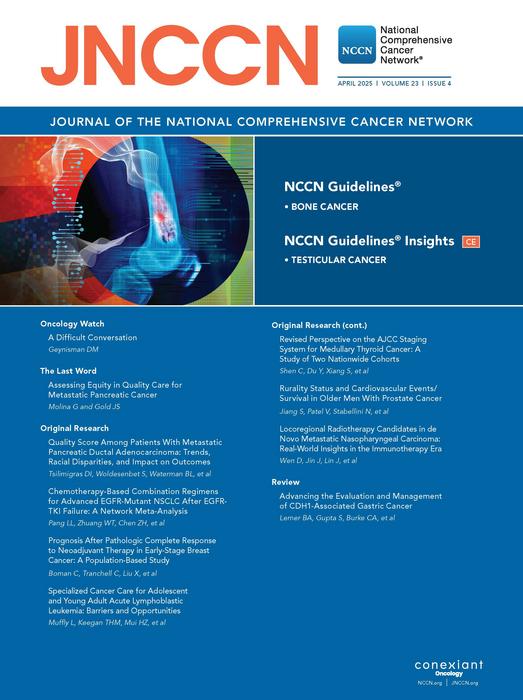New research published in the April 2025 issue of the "JNCCN—Journal of the National Comprehensive Cancer Network" sheds light on alarming disparities in the care and outcomes of patients diagnosed with metastatic pancreatic adenocarcinoma (mPDAC). This aggressive form of cancer is notoriously associated with high mortality rates and presents significant challenges in treatment. By meticulously analyzing data gathered from the Surveillance, Epidemiology, and End Results (SEER)-Medicare database, researchers evaluated a cohort of 14,147 patients diagnosed with mPDAC between 2005 and 2019.
The findings of this study, led by Dr. Diamantis Tsilimigras from The Ohio State University Wexner Medical Center and James Comprehensive Cancer Center, reveal profound inequalities in healthcare access based on pivotal factors such as race and socioeconomic status. The research emphasizes that patients categorized as socially vulnerable, as indicated by their Social Vulnerability Index (SVI), face a 30% reduction in their likelihood to meet essential quality care indicators, including receiving guideline-concordant systemic therapy and palliative care.
When examining racial disparities separately, it becomes evident that individuals from underserved racial or ethnic groups are 25% less likely to access one or more critical quality indicators of care. Furthermore, the data suggests that patients with lower socioeconomic status exhibit a staggering 34% decrease in their chances of receiving appropriate quality care, regardless of their racial background. This study elucidates the multifaceted barriers that exist in cancer treatment and underscores the urgent need for systemic change.
Dr. Tsilimigras asserts that the results advocate for targeted interventions designed to alleviate these disparities that plague cancer care. He emphasizes the potential impact of federal policies that could expand Medicaid and Medicare coverage for palliative services, which are particularly crucial for underrepresented populations. Alongside policy enhancements, there is a pressing need to address the social determinants of health, which include not just financial constraints but also the implicit biases that affect treatment decisions and recommendations.
An intriguing discover emerged from the analysis of patient outcomes; those who received appropriate systemic and/or palliative care demonstrated significantly increased survival rates, with many surviving beyond one year post-diagnosis. It is noteworthy that the study observed a general improvement in the quality of care metrics and patient survival rates throughout the study period from 2005 to 2019. This suggests that while progress is being made, disparities in care access remain a significant barrier to equitable outcomes.
Moreover, senior author Dr. Timothy M. Pawlik of The Ohio State University echoes the importance of providing guideline-concordant care to all patients, regardless of their demographic backgrounds. He points out that adherence to the NCCN Guidelines has seen improvement, yet stark inequalities persist and require immediate attention. The implications of these disparities are far-reaching; they do not merely reflect gaps in healthcare delivery but also bear significant consequences for patient outcomes, morbidity, and mortality in those battling metastatic pancreatic cancer.
The comprehensive nature of this research draws a clear connection between social vulnerability and challenges within cancer care. Factors such as marital status, income levels, and racial background all interact to influence care quality. These findings are particularly relevant in the context of pancreatic cancer treatment, where there is a critical need to ensure that individualized and equitable care strategies are employed.
Supporting this assertion, Dr. Jason S. Gold from Harvard Medical School, who was not involved in the study, stresses that the growing awareness of these disparities highlights the necessity for healthcare systems to implement measures for overcoming barriers to treatment. The research reinforces previous studies addressing the social and economic factors that contribute to unequal cancer care and enables a more focused dialogue on addressing these critical issues within the healthcare sphere.
As the scientific community endeavors to attain equitable health outcomes, studies like these serve as valuable resources, informing policymakers and healthcare providers on the pressing need for comprehensive reforms. By integrating lessons from this study into public health strategies, there is potential for significantly improving the lives of patients fighting pancreatic cancer.
The development of future research initiatives that further explore the intersection of socioeconomic factors and treatment outcomes will be crucial in understanding and addressing these disparities in cancer care. With the increasing recognition of these issues, it is essential for engagement among stakeholders, including healthcare professionals, governmental bodies, and community organizations to work collaboratively toward meaningful change.
The pathways ahead are emblematic of a greater commitment to ensuring that all patients, particularly those in marginalized communities, receive fair access to quality cancer care. This study opens the door to discussions regarding healthcare equity, fostering an environment where knowledge and policy align to sustain and improve patient outcomes overall.
In conclusion, while strides have been made in the field of oncology, understanding and addressing disparities in care for metastatic pancreatic adenocarcinoma remains imperative for the advancement of cancer care and research. As healthcare shifts towards a more equitable framework, it becomes increasingly clear that inclusivity needs to be at the forefront of cancer treatment, ensuring that every patient is afforded the best possible chance for survival and recovery.
Subject of Research: Disparities in cancer care for patients with metastatic pancreatic adenocarcinoma.
Article Title: Quality Score Among Patients With Metastatic Pancreatic Ductal Adenocarcinoma: Trends, Racial Disparities, and Impact on Outcomes.
News Publication Date: April 9, 2025.
Web References: JNCCN.org
References: DOI Link
Image Credits: NCCN
Keywords: Pancreatic cancer, cancer research, clinical research, social research, cancer patients, cancer treatments, metastasis, pancreas, cancer policy, adenocarcinoma, socioeconomics, public health, social discrimination, racial discrimination, social inequality.




